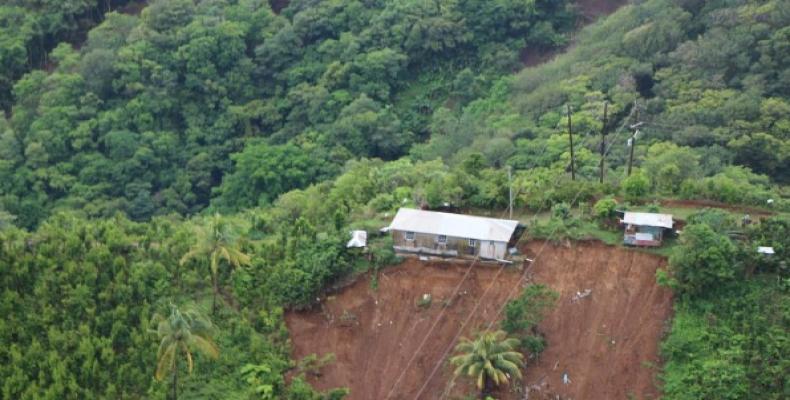Castries, December 4 (teleSUR-RHC)-- Like most small islands, global warming and a rise in sea levels pose some of the greatest threats to Caribbean nations. Storm surges, flooding and soil erosion threaten their survival.
Saint Lucia’s prime minister and lead Caribbean Community (CARICOM) spokesperson on climate change Kenny Anthony addressed the 12 million people of the region ahead of COP 21, speaking about the region’s unique vulnerabilities to climate change.
“The greenhouse gas emissions cuts being proposed by countries in their Intended National Determined Contributions or INDC’s will still result in a 2.7 degree Celsius warming by the end of the century. For small island developing states like ours, the science has shown that any long-term global temperature increase above 1.5 degrees Celsius would be catastrophic,” he said.
Citizens say the Caribbean suffers greatly from climate change and they are hoping that COP21 will bring about the desired results.
“It represents a detriment to our very health even though we don’t have a lot of emissions and so on, but you know, we suffer and we suffer a lot from whatever the big states are doing, like China,” says Attorney-at-Law Shirley Lewis.
Rosemund Clery says, “For the sake of our children and the future of this country and the future of children to come, I think it’s worth it. You know, it’s worth a try. Although we are small countries, we have very little say. They don’t take us for anything, but it’s worth trying. “
Residents of other small island states say they too are anxiously awaiting the results of COP21.
“Small nations should participate in that, as a right, because the contamination hurts everyone, not only the rich countries. Historically the rich nations take advantage of their positions, so poor nations like you guys and also Puerto Rico suffer badly,” says Puerto Rican resident Giovanni Perez.
The small states are hoping for two things at COP21; limiting global warming to no more than 1.5 degrees Celsius and commitments by industrialized nations to provide financing for climate change adaptation and mitigation initiatives.
Caribbean negotiators and leaders say in the absence of these, the region faces grave danger.


